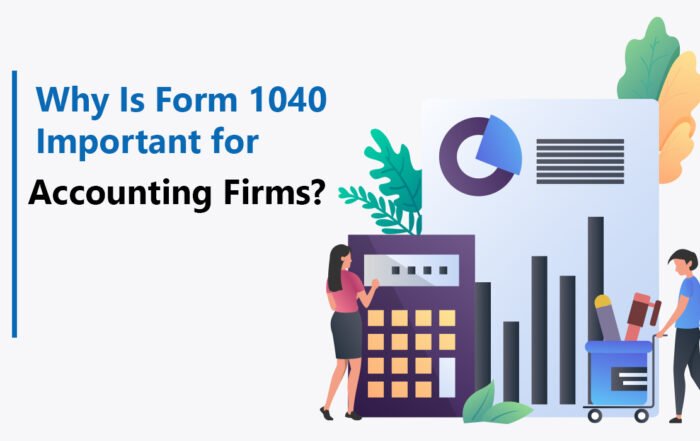Annual account preparation is a critical task for any business. It serves as a financial snapshot of your company, providing insights into its performance, financial health, and areas for improvement. However, preparing annual accounts may not be very easy for some time, and any small error that may be made can turn out to be very costly. Some of the errors that business people are likely to make when preparing their annual accounts will be highlighted in this blog together with strategies on how to go around them.
1. Inaccurate Data Entry
The most typical type of error seen in preparing annual accounts is the entry of wrong data. This can be a result of manual mistakes, the absence of checks or balances, or antique systems of accounting. Credible information can be as perverted as to provide wrong figures in the financial statements, which in turn, mislead the stakeholders and induce wrong decisions in the business scenario.
How to Avoid It:
- Those accounts must be checked by at least two people as part of the system of double checks.
- Employ suitable accounting software that reduces the keying of figures by hand and has less margin of error.
- Remember to update the accounting software to the latest version for you to access better features plus the special security patch.
- That is why staff have to be trained to be very careful with the inputs and to comprehend the significance of proper accounting.
2. Improper Classification of Transactions
The second one is often seen in the wrong allocation of transactions. If income, expenses, assets, or liabilities have been incorrectly categorized, this will provide wrong financial statements and wrong tax returns.
How to Avoid It:
- Draw a definable line between business and personal transactions as well as between different categories of business transactions.
- Chart of accounts should be reviewed at least once a year to make sure that it has a proper reflection of businesses’ activities.
- The tallying must be done in accordance with the accounting standards of your India; perhaps, it is wise to seek advice from an expert in accounting.
- This is good because it can easily lead to errors by failing to categorize the transactions well, thus, outsourcing accounting firms such as lints Advisors can help you with proper classification.
3. Ignoring Reconciliation of Accounts
Account reconciliation is the process of comparing the balances in your records that relate to your business’s transactions with the balances in your bank statements. Skipping this step can have fundamental errors that may not be well discovered until when it’s too late, for instance, overdrafts, unrecorded transactions, or fraud.
How to Avoid It:
- That is why it is recommended to make reconciliation not an annual affair as it is usually done, but a part of the monthly account process.
- Employ an accounting software that will link your books of account with the bank statements, without requiring manual matching.
- If the process of reconciliation reaches a state where it is impractical to perform or takes a lot of time of the business, then there is an option to seek services of an annual accounting company.
4. Overlooking Depreciation and Amortization
Depreciation and amortization are two techniques of allocating the cost of assets – tangible and intangible respectively, over their useful life. Over or under estimating them results in over or understating your assets, your expenses or cost of sales hence the position of your net income.
How to Avoid It:
- Develop a depreciation and amortisation schedule at the start of the year and use it in the company’s operations.
- Check the records of assets periodically to modify the useful life or residual value of the assets.
- Consult with an independent accountant in India to get the legalities of depreciation and amortization worked out for local standards.
5. Not tracking pace of change of legal requirements
Far as this point, organizations recognize that accounting standards and tax regulations are dynamic. Failure to install updates results in non compliance, penalties and at times some legal cases may arise. This is especially the case with the numerous changes that can occur within the market and may be hard to track for a small business.
How to Avoid It:
- One can also request for newsletters, follow accounts’ professional bodies that give information on changes in laws.
- Schedule an annual accounting company similar to Lints Advisors if you need help to continue with your business based on the current rules and regulations.
- If it is manageable, you can consider outsourcing your accounting work to a firm that is always in a position to update with the changing regulations within the financial market.
6. Failing to Prepare for Audits
Audits often are viewed as an addendum to the normal course of operation in most companies, and the relevant papers are collected before the actual audit is conducted. The process becomes rather stressful and sometimes haphazard, with documentation being done at an ad hoc basis instead of in a logical progression, which might be noticed and raise a blind eye with auditors.
How to Avoid It:
- The records should be kept intact throughout the year, such that you can easily view all the transactions made.
- Perform internal audits from time to time in order to rectify problems without waiting for external auditors to discover them.
- Consult with an accounting firm that would be of assistance in preparing the company’s documentary requirements to meet with audits.
7. Inadequate Cash Flow Management
Cash flow is the very life of most businesses, and poor control results in deficits, loss of opportunities, and stress. The other common mistake is that many companies pay much attention to balance sheets and income statements while previously having no concern about cash flow statements.
How to Avoid It:
- Develop standard cash flow projections to be able to identify a cash reserve shortage and deal with it.
- It is also recommended to control accounts receivable and payable by trying to avoid overdue payments and collections.
- It may be wise to seek professional help in preparing the annual accounts so that an efficient cash flow management plan can be stated.
8. Overlooking Tax Deductions and Credits
Employers lose a significant amount of tax deductions and credits precisely because they do not know about them or simply do not record them. This leads to the payment of a lot of taxes as compared to the amount that can be utilized for reinvestment by the business organization.
How to Avoid It:
- From the tax point of view, maintain a strict record of all the business expenses regardless of those which are allowable for tax deduction or tax credit.
- Find out on the Tax deductions and Tax credits that apply to your business.
- Speak to an accounting consultant in India who will be able to inform you of all the possibilities for tax deductions.
Conclusion
Annual account preparation is a vital process that requires careful attention to detail and adherence to best practices. By avoiding these common mistakes, businesses can ensure accurate financial reporting, maintain compliance with regulations, and make informed decisions for the future. Partnering with a reliable accounting firm like Lints Advisors can provide the expertise and support needed to navigate this complex task successfully. Whether you need help with data entry, transaction classification, or staying updated with regulatory changes, outsourcing to a professional team can help you avoid costly errors and focus on growing your business.
Financial Sector Trends: What the 2025-26 Budget Reveals
The Union Budget 2025-26, unveiled by Finance Minister Nirmala Sitharaman, has set the stage for transformative changes in India's financial sector. The upcoming budget concentrates on developing economic expansion while making credit options more accessible [...]
Empowering Women: Financial Planning for 2025
In today's dynamic financial world, empowering women through tailored financial planning is more crucial than ever. Women often face unique financial challenges, including longer life expectancies, career breaks for caregiving, and persistent wage gaps. Addressing [...]
Why Is Form 1040 Important for Accounting Firms?
When it comes to the world of taxes, Form 1040 holds a central position. It is often referred to as the "U.S. Individual Income Tax Return" and serves as the primary document taxpayers use to [...]





